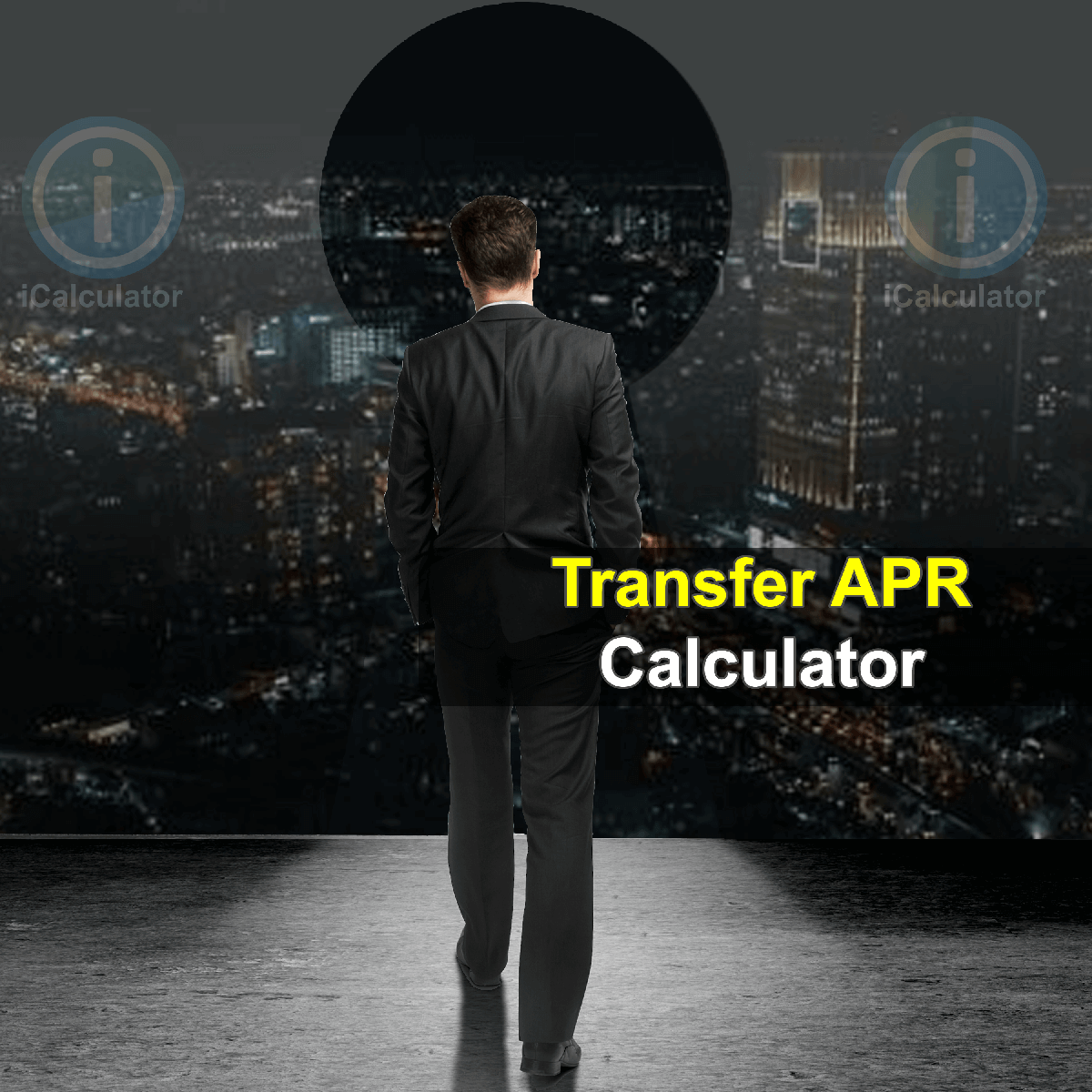Menu
Creditline Transfer APR Calculator
There are many kinds of credit lines available in the market. They are used by both corporate and individual customers. These are short term loans and overdrafts offered by the banks to their customers. Similar to credit cards, these are borrowing limits that can be used any time.
| $ | |
| $ | |
| Days | |
Please provide a rating, it takes seconds and helps us to keep this resource free for all to use
Know the real cost of your credit line transfer to make wiser financial decisions

Credit line transfers generally happen under the overdraft protection plan, which is basically a credit line itself. These protection plans are applied to the customer's checking account by linking it to their savings accounts. Let's take a deeper look at the process that involves credit line transfers.
Credit line transfers and their Annual Percentage Rates (APR)
The credit line transfers are made as a planned or unplanned transaction. There are different fees and charges that are applied by the banks on these transactions. Some of them being the annual interest and transaction fees that are considered to be unreasonably high by many customers. However, these fees and charges are legally authorized and banks are unlikely to revise them in the near future.
These transactions are the most profitable for the banks, controversially, they are a rip off for the customers. The worst part is many customers are not even aware of the real cost of using these facilities. You can find out this cost by calculating the APR for these transactions, that will show the real picture:
Annual percentage rates (APR) are the actual annual cost that you pay on your borrowings. This is expressed in a percentage, considering all the charges that are levied on the principal amount, including interest, fees or any other charges. Since credit line transfers are charged with a fixed amount of fee this can be calculated by using the following formula:
Let's try to understand it better with an example: Assume you have a checking account and a savings account with ABC bank and you are running a successful business that requires you to make payments and receive payments regularly. But just as a caution you have opted for a credit line in the form of overdraft limit on your checking account. It is also covered by an overdraft protection plan that transfers money from your savings account to your checking account just in case it reaches below zero.
Now, let's say that your account had a £1,000 balance, but it was hit by a cheque of £1,025, in this case the overdraft protection plan transferred an amount of £35 that brings your checking account balance above zero as well as covers the fee of £5.75. Now the total loan amount here would be considered as £30.75 (£25 to cover the overdraft + £5.75 fee), when put it into the above mentioned formula, you will find out that it will cost you 6825.2% in a day.
This happens because even if the amount was regularized the very same day, the bank's system will calculate its transaction charges for at least a day, irrespective of the transaction amount. Doesn't it seem unrealistic and unreasonable? Well, from now on you can calculate these charges in order to avoid paying the hefty price for small transactions, and you don't even have to go through the calculations manually, you may just use an online calculator such as the credit line transfer APR calculator designed by iCalculator to simplify these complex calculations. Let's explore how to use the calculator.
How to use the calculator to find out the actual cost of your credit line transfer facility
In order to get the desired results, just enter the following values into the calculator:
- Loan amount: As explained above, enter the loan amount according to the transaction.
- Loan fee: The amount of the transaction fee that is charged at a fixed rate and can be obtained from your statement of account or just ask your bank.
- Repayment time: This is to be entered as the number of days, input minimum 1 as this is the basic criteria of these kind of transactions anyways.
Benefits of using the calculator
On the basis of above inputs made by you the calculator will provide you with the APR of your credit line transfer with just a click.
You may use the results obtained from the calculator in comparing the fees that are being charged by different banks, to find out if it is time to switch banks.
You may also use the calculator even if you do not have the facility yet, just by making inquiries about charges, and decide if it is in your favor to use the facility.
Finance Calculators
You may also find the following Finance calculators useful.
- Current Ratio Calculator
- Simple Pay Rise Calculator
- Adding Machine Calculator
- Stock Calculator
- Simple Annuity Calculator
- Home Equity Line Of Credit Calculator
- Retirement Roth Calculator
- Rule Of 72 Calculator
- Earnings Per Share Calculator
- Capital Asset Pricing Model Calculator
- Present Value Of A Future Sum Calculator
- Commision Calculator
- Fixed Depreciation Calculator
- Combined Dividend And Paye Calculator
- Vat Calculator
- Accounting Rate Of Return Calculator
- Credit Card Repayment Calculator
- Credit Card Calculator
- Dividend Calculator
- Average Payables Period Calculator